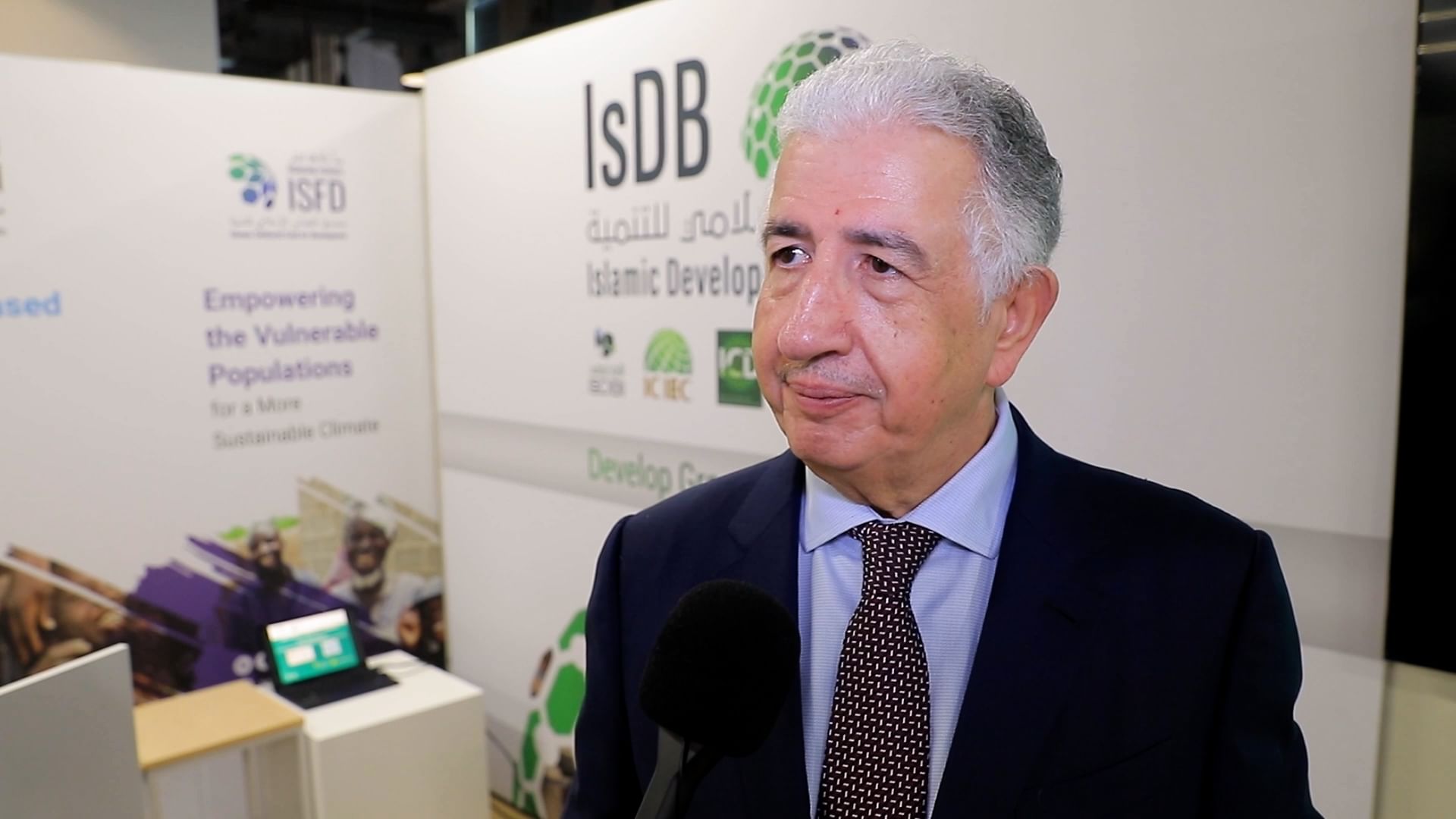Dubai, UAE— The International Islamic Trade Finance Corporation (ITFC) is looking to ramp up its sustainable and green financing to nearly 30% of its total financing portfolio.
This was stated by Hani Salem Sonbol, CEO of the ITFC, affiliated with the Islamic Development Bank Group.
Speaking to the Emirates News Agency (WAM) on the sidelines of the COP28 conference, Sonbol, who is also Acting CEO of the Islamic Corporation for the Development of the Private Sector, highlighted a clear inclination towards boosting the presence of green financing within their portfolios. He anticipates a significant acceleration in this trend over the forthcoming years.
“Participation in COP28 holds significance in addressing climate issues, now a global priority,” Sonbol said. “We can’t ignore their impacts on sectors we’re actively developing within the member countries of the Islamic Development Bank Group.”
He emphasised that participation in such summits fosters partnerships and agreements, allowing a review of strategies for institutions under the Islamic Development Bank Group to combat climate change effectively.
“COP28 arrives at a critical juncture,” Sonbol noted. “Combating the ramifications of climate change is no longer optional but an urgent necessity. This extends beyond environmental shifts, encompassing crises such as health emergencies and geopolitical tensions.”
He optimistically anticipated positive outcomes from COP28, propelling climate action forward. “We hope to see a reduced pace of climate change effects on Earth, fostering a global environment of security, prosperity, and peace,” he said.
Sonbol emphasised that many sectors funded by the ITFC are significantly impacted by climate change. He highlighted the need for effective solutions, including increasing green financing to 30% of the ITFC’s portfolio, mobilising resources through the issuance of green bonds, and implementing programs and initiatives that advance climate action.
He highlighted the vital role agriculture plays in many member countries, with over 60% relying heavily on it for their income. He emphasised the profound impact climate change has on this sector and its subsequent effects on the economies of these countries.
“Climate change profoundly affects the agricultural sector, impacting the economies of member countries,” Sonbol stated.
He further stressed the importance of supporting farmers with innovative financial solutions and new technologies, recognising their crucial role in ensuring food security and economic stability.
Sonbol also revealed the ITFC’s success in forging partnerships during COP28. Notably, the ITFC renewed its commitment to collaborate with the United Nations Industrial Development Organisation (UNIDO) to enhance industrial development and trade. This collaboration involves pooling expertise, technologies, and financial resources to achieve shared sustainable development goals.
The CEO showcased the institution’s comprehensive strategy for driving climate action and sustainable development through various innovative financial solutions. He highlighted programmes that foster economic growth and resilience in Arab and African nations (Arab Africa Trade Bridges), empower small and medium enterprises (SMEs Support), and address food insecurity while promoting sustainable agriculture (Food Security programme).
This multifaceted approach demonstrates the ITFC’s commitment to a more prosperous and environmentally conscious future.
Sonbol emphasised their partnership with Oil Sustainability Programme (OSP) in developing specialised programmes promoting the transition to clean cooking solutions. He highlighted the impact of traditional cooking methods, relying on wood, charcoal, and animal dung, on human health and the environment, particularly in Africa and other developing nations.
These traditional methods contribute to significant annual health problems, making the shift to cleaner alternatives like liquefied petroleum gas and affordable renewable energy sources crucial.
This partnership exemplifies the ITFC’s commitment to sustainable development and improving the lives of communities worldwide. By facilitating the transition to cleaner cooking practices, the ITFC aims to reduce health risks, improve environmental well-being, and contribute to a more sustainable future.
Sonbol announced the ITFC’s groundbreaking role as the first Islamic institution to embrace carbon credits through Sharia-compliant financial products. This pioneering move paves the way for a future that integrates environmental responsibility with ethical financial practices, ultimately leading to a more sustainable and prosperous world for all.
He said that successfully integrating Islamic finance and carbon credit projects presents unique challenges. To overcome these hurdles, he said that a multifaceted approach is essential, which requires collaboration from all stakeholders, including private sector entities and international partners.








